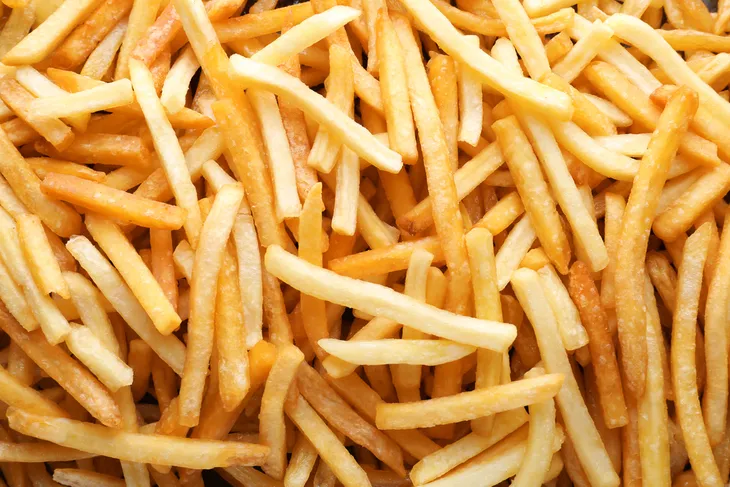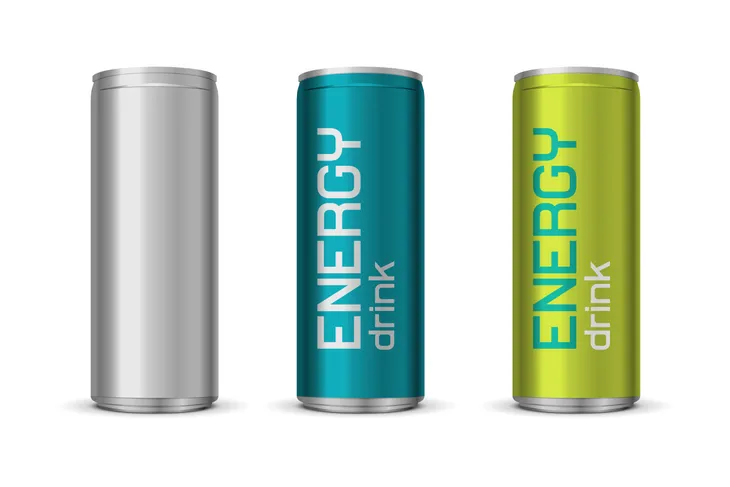Why is it when we’re feeling particularly stressed, we tend to reach for the foods that will exacerbate our anxiety the most? It’s a proven fact that when the heat is on; the body is unrelenting in its craving for foods that are high in fat, sugar, and salt.
You can blame the communication between your brain and body for your tendency to reach for snacks that will ultimately increase, not decrease, your cortisol levels in the wake of stress. This surge to the body thanks to the “fight or flight” response grants us temporary euphoria over the short term, but will end in a miserable pile of irritability, exhaustion, and headaches over the long term.
We’ve all done it before — engaged in a little emotional eating when times get tough. But before heading to the vending machine or ducking out for a donut to quench the stresses of the work day, take some time to learn about the 10 worst foods to eat when feeling stressed…
Candy Bars
I’m often guilty of turning to chocolate myself after a particularly perilous day. I also tend to cave and go in search of chocolate when I’m in premenstruation (the days leading up to my period) as well as during menstruation. However, foods and treats that are high in refined sugar only increase stress hormones (i.e., cortisol) and send blood sugar levels soaring so high that a sugar crash landing is unavoidable not soon after.
Really, when you turn to refined sugar when you’re stressed, you’re just aggravating your stress levels. If chocolate increases cortisol levels, you’re actually flooding your body with stress hormone (your body’s natural flight or fight response) when you’re not in danger. Elevated cortisol levels will cause a super energetic feeling, followed soon after by a crash of energy due to the super fast absorption of refined sugars.
Coffee
There is no such thing as a calming cup of coffee. And even though you might feel at ease burying your stress in an extra large double caramel macchiato, the killer trifecta of caffeine, sugar, and fat will only increase agitated, caffeine jitters, and leave you regretting your sugar crash.
So do yourself a favor when you’re feeling stressed, and turn to a calming cup of herbal tea that won’t give you the coffee jitters. The last thing you want to do when you’re stressed is to further agitate your nerves with a caffeine jolt. And keep tea sugar free by option to drink it black or add a touch of honey for natural instead of refined sweetness.
Red Meat
Sure, red meat is known for its high iron content. But before you slice into that thick, juicy steak, bite off this little piece of nutritional wisdom—studies link high protein diets with increased levels of dopamine (your brain’s brain’s reward and pleasure center), which can increase stress signals to the brain.
Remember, when you regularly consume a diet high in protein, but minus other essential nutrients (complex carbohydrates, healthy fats, fresh fruits and vegetables), your body can become overrun by dopamine. Accelerated levels of dopamine can greatly mess up brain signals. This is why a balanced diet is important.
French Fries
Munching away on a crispy pile of fat-laden French Fries, waffle chips, or even sweet potato fries (they’re still fried) might give you a quick energy boost. However, your choice in high fat, high sodium, empty carb snack will leave you void of any actual energy later on.
It’s perfectly fine to enjoy a small plate of fries in moderation. Just don’t make French fries a feature part of your diet. Or if you love fries way too much not to eat them several times per week, try making your own healthier version at home. You can slice and bake a tray of sweet potatoes or a mix of white potatoes and sweet potatoes in the oven. Brush with a bit of olive oil, sprinkle with sea salt and bake in the oven for 30 minutes.
Energy Drinks
You might think you’re reaching for a can of white lightning when in fact all you’re guzzling down is an inevitable sugar crash. Energy drinks are some of the worst beverages you can drink to deal with stress. A single can of an energy drink, like Red Bull, will often leave you feeling so anxious that you’ll be unable to concentrate on anything but your caffeine jitters!
Just be conscious about the amount of sugar you are ingesting with a can, or (gasp) two of energy drinks. According to biological scientists at Bangor University, a single can of Red Bull delivers a super-sized portion of sugar–approximately 13 teaspoons of sugar per 473-milliliter can.
Alcohol
A nice glass of wine might seem like the perfect reward after making it through a stressful day. However, alcohol doesn’t calm you—it actually stimulates the body’s natural stress response. In fact, according to research studies published in Psychology Today, heavy drinkers have naturally higher cortisol levels than moderate and non drinkers.
The study also revealed that elevated levels of stress are often caused by alcohol and drug use. Unfortunately, if you’re in the habit of having a nightcap regularly, that excess stress you’re placing on your body will not help you sleep, and will also contribute to the risk of cancer, stroke, and heart attack.
Chips & Snack Crackers
Your favorite bag of chips or boxed snack crackers promise very little in the way of nutritional value. In fact, the whole bag is not much more than a ripe pile of processed fat, artificial additives, and a whole whack of sodium. Sure, it might feign little comfort at first sight or third handful—but really, has no actual reward when it comes to reducing stress and boosting mood.
Let’s admit it, it’s super difficult to eat just one handful of chips or crackers, especially if you’re feeling stressed as it is. If you’re hungry (or hangry, as I dub emotional, stress-induced eating) turning to convenience foods on the fly (i.e., such as a box of crackers or a bag of chips) can be easy on the go. However, if you crack that bag when you’re already hungry, you’ll likely devour the entire bag very quickly.
High Fat Dairy
Cream, higher fat milk, and rich cheeses are known to be rather difficult on the digestive system. And digestion issues will inevitably stress out the body further, particularly if you consume them late in the evening and disrupt your sleep patterns. Many folks who suffer from IBS, a stress induced condition, are also lactose intolerant.
Cow milk products almost always carry a natural sugar called lactose within. While some of us can easily digest lactose, the body uses a specific enzyme called lactase in order to do so. For many folks, they don’t produce adequate lactase (for a variety of reasons–including age, genetics, intestinal injury, or due to a digestive disorder, like IBS). Stress can further exacerbate the symptoms of IBS (i.e., gas, cramps, nausea, bloating, and diarrhea).
Spicy Foods
Oftentimes, when our bodies are stressed we feel the ramifications in our digestive systems in the form of gas, abdominal pain, and bloating. That means a spicy meal will just aggravate the digestive upset and leave you with a nasty case of heartburn or acid reflux. Although, several folks attest that the cause of heartburn (when the esophageal sphincter relaxes and allows stomach acids and contents to flow upward toward the throat and mouth) is caused by spicy foods.
Several studies, including one published by researchers at Stanford medical school in the Archives of Internal Medicine, concluded that while alcohol and tobacco and alcohol have a relaxing effect on the esophageal sphincter, most foods, including those which are exceptionally spicy, don’t’ exacerbate heartburn.
Vegetable Oils & Margarine
Not all edible oils and spreads are created equally. For instance, canola oil and margarine contain high levels of trans-fats, which not only contribute to high cholesterol and high blood pressure, but also amplify your risk of heart disease.
A study conducted by researchers out of the University of California-San Diego, monitored the effects of trans fats on the stress levels of 1,000 healthy people. Scientists revealed that not only did those with high trans fats diets do poorly in memory tests, they also caused several health issues, including increased levels of stress. Researchers drew the conclusion that trans fats’ elevated oxidative stress.













